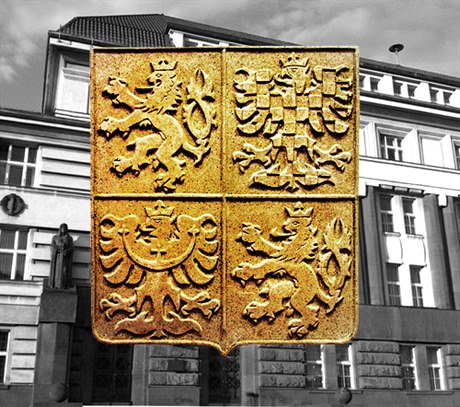Back in 2008 Czech Justice Minister Jiří Pospíšil (Civic Democrat, ODS), who has since been reappointed to the position, spoke boldly in favor of abolishing High Courts. There are two, based in Prague and Olomouc, which employ around 140 judges in total and hundreds more back up staff. They deal with cases concerning central authorities and take appeals from regional courts, being one level down from the Supreme Court.
Pospíšil put a timeframe of the idea bearing fruit by 2010 at the latest. Half a year on from that deadline, those bold remarks — supported overwhelming by a poll of those in the legal professional carried out by Czech Position — appear to have been buried.
The justice minister now says abolition of High Courts is not being considered, on the (not very convincing) grounds of its cost. Ministry spokeswoman Tereza Palečková says Pospíšil’s basic views have not altered, but that the move now comes up against the unfavorable financial situation in the sector.
‘The ministry believes that that a further burden on these courts at this moment is not possible or desirable.’
Getting rid of the High Courts would be another shake-up of the judicial system and would result in a further burdening of the already over stretched district courts, which are already profiled as the weakest and most overworked link in the current system.
“Given the 10 percent cut in the overall wages bill and fact that district courts have lost some of their administrative workers, the ministry believes that that a further burden on these courts at this moment is not possible or desirable,” Palečková said.
Reasons for getting rid of the high courts are quite numerous:
- They are a legal luxury in the small Czech Republic
- They are a left over from the federal rearrangements and remained after the break-up of the former Czechoslovakia
- Their disappearance would simplify the overall legal structure
- They are often staffed by elderly judges with a Communist past
- They are often used as a tool of party politics.
When the question of getting rid of High Courts was more urgent that it seems today, some attempt at getting to grips with the costs was made. One of the studies commanded by the Justice Ministry speaks of costs in the ballpark of “tens to hundreds of millions of crowns.” This would have been comprised of shifting hundreds of people, IT changes, transferring documents and files, etc. Personnel costs were, however, lacking in the analysis. According to the study’s author, it was not possible to hazard a wild guess about them.
From a short-term point of view, abolition of High Courts could incur some exceptional short-term costs but would almost certainly result in long-term savings and a simplification of legal proceedings. Perhaps, though, costs are not the biggest question concerning abolition. A higher factor could certainly be the pressure from political and judicial circles to leave the current set-up, where favors and influence can be traded, well alone.
Political pressure for radical changes to the system is certainly not evident in the current program priorities of the center-right coalition government. The program itself makes no specific reference to high courts. Instead, the program makes wooly references to “considering the undertaking of an analysis of the effectiveness of the organization of the judicial system and four-level court administration and propose possible means for its simplification.” In practical terms, this wooly undertaking has resulted in nothing.
Political pressure for radical changes to the system is certainly not evident in the current government program.
According to information received by Czech Position, the early wording of the program text would have made specific reference to High Courts but this was later watered down. Some parts of the legal system, whose wishes were expressed by some politicians, lobbied for this dilution.
Abolition of High Courts would certainly not be an easy task. It would first of all require a constitutional majority (a three-fifths majority of the lower house of parliament and the Senate), That would mean getting the center-left Social Democrats (ČSSD) on board and even, perhaps, the Communists (KSČM) to support the move. That sort of consensus is difficult to imagine.
According to lawyer Karel Havlíček, the main editor of Soudce (Judge) magazine, the current fourth pillar of the Czech legal set-up, High Courts, is one that plays into the hands of politicians. After all, trying to influence the Czech Republic’s two high courts, sited in Prague and Olomouc, is a lot easier than trying to exert influence over many regional courts.
“A simpler and clearly, partially simplified, response would be that the Czech Republic does not need a four part judicial system,” Havlíček adds. Overall, he considers the domestic structure to be illogical and that holds true for a lot more than High Courts. The fact that some regions have their own regional courts while others regions only have branches of such courts. Some regional courts have several such branches of their own; others one; and some, none at all.
Havlíček tips High Courts to continue, even though the topic of whether they should exist at all will continue to run.




